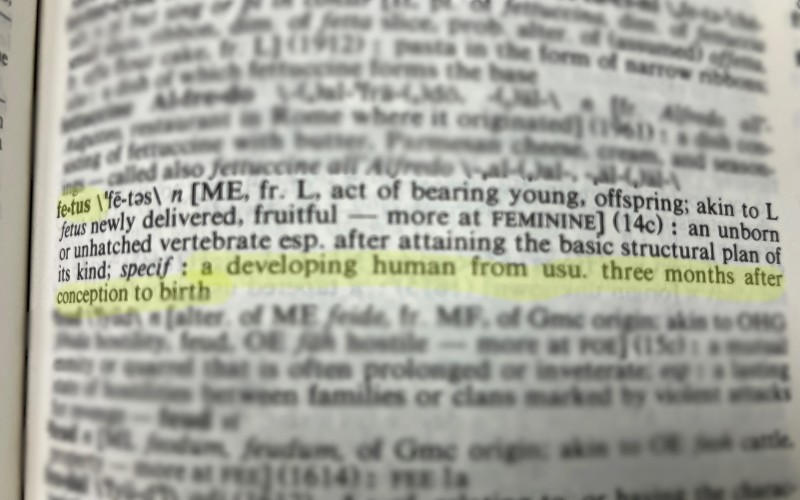The Affordable Care Act (ACA), heralded as a landmark reform for expanding access to healthcare, remains deeply flawed in its structure and implementation. While the recent withdrawal of the Biden administration’s proposed rule to remove moral exemptions from the ACA’s contraceptive mandate is a reprieve of sorts, the mandate’s core language still needs reform. This issue is emblematic of broader problems in the ACA that demand urgent attention – not least the disparities it has created in Medicaid funding priorities.
First, the contraceptive mandate remains a point of contention, with religious groups like the Little Sisters of the Poor and businesses such as Hobby Lobby repeatedly finding themselves entangled in legal battles over the mandate’s reach. The ACA’s language, which lacks sufficient safeguards for religious freedom and conscience rights, has become a flashpoint for cultural and legal disputes that should never have arisen. The law must be amended to enshrine robust protections for moral and religious objections, ensuring that individuals and organizations are not compelled to act against deeply held beliefs. Without such reform, the mandate’s language will continue to be weaponized, particularly against conservative Christians.
 But the ACA’s flaws extend far beyond the contraceptive mandate. Nowhere is this clearer than in Medicaid’s funding structure under the ACA, which prioritizes able-bodied adults over mothers, kids and the disabled. The federal government’s elevated Federal Medical Assistance Percentage (FMAP) for able-bodied adults enrolled through Medicaid expansion is a glaring inequity. Under the ACA, states receive a substantially higher reimbursement rate for covering able-bodied, working-age adults – up to 90% – compared to the rates for traditional Medicaid populations, including seniors, people with disabilities, and low-income mothers and children.
But the ACA’s flaws extend far beyond the contraceptive mandate. Nowhere is this clearer than in Medicaid’s funding structure under the ACA, which prioritizes able-bodied adults over mothers, kids and the disabled. The federal government’s elevated Federal Medical Assistance Percentage (FMAP) for able-bodied adults enrolled through Medicaid expansion is a glaring inequity. Under the ACA, states receive a substantially higher reimbursement rate for covering able-bodied, working-age adults – up to 90% – compared to the rates for traditional Medicaid populations, including seniors, people with disabilities, and low-income mothers and children.
This disparity is not just a fiscal inefficiency – it is a moral failing. By prioritizing funding for able-bodied adults, the ACA has created a system in which the most vulnerable populations are devalued. How can we justify a framework that provides fewer federal dollars to support care for disabled individuals and seniors than for those who are capable of working? It is a cruel inversion of priorities that demands correction.
 To address these issues, Congress should pass legislation to eliminate the elevated FMAP for able-bodied adults under Obamacare’s Medicaid expansion. Instead, policymakers should prioritize those who need it most: the elderly, the disabled, and other vulnerable groups. This reform would not only restore fairness, but also free up resources for states to innovate and improve their Medicaid programs without being beholden to federal mandates that incentivize misaligned spending priorities.
To address these issues, Congress should pass legislation to eliminate the elevated FMAP for able-bodied adults under Obamacare’s Medicaid expansion. Instead, policymakers should prioritize those who need it most: the elderly, the disabled, and other vulnerable groups. This reform would not only restore fairness, but also free up resources for states to innovate and improve their Medicaid programs without being beholden to federal mandates that incentivize misaligned spending priorities.
The ACA was built on the promise of expanding access and reducing inequities in healthcare. Yet its design flaws have perpetuated disparities and fostered unnecessary conflict. It’s time to revisit the ACA with a critical eye, amending its provisions to reflect fairness and respect for moral and religious beliefs and providing for the most vulnerable among us. Fixing the contraceptive mandate and Medicaid funding disparities is not just a matter of policy – it’s a matter of principle.
The promise of healthcare reform should not be an unfulfilled ideal. Congress must rise to the occasion, ensuring that the ACA lives up to its goals while safeguarding the rights and dignity of all Americans. If we fail to act, the law will remain a source of discrimination rather than a vehicle for truth.
Notice: This column is printed with permission. Opinion pieces published by AFN.net are the sole responsibility of the article's author(s), or of the person(s) or organization(s) quoted therein, and do not necessarily represent those of the staff or management of, or advertisers who support the American Family News Network, AFN.net, our parent organization or its other affiliates.








